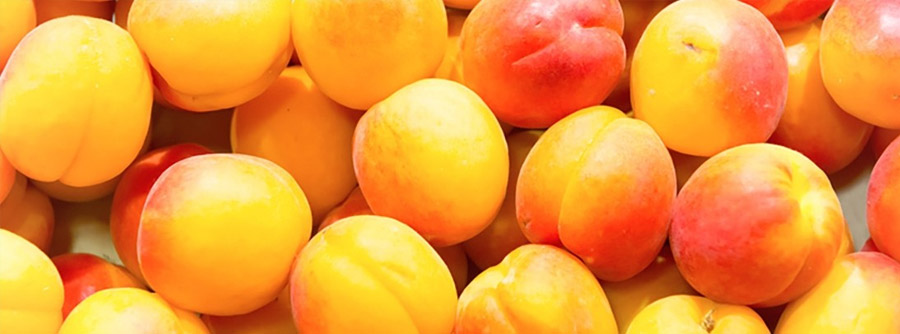The Nutritional and Health Benefits of Apricots

Apricots are fruit from the end of spring and summer, fresh, easily perishable but very tasty and appetizing at its optimum moment. Its low sugar content and its vitamin and mineral contribution are very interesting.
If you have any questions about your diet, MAPFRE Salud Insurances have a wide medical team of Nutrition specialists.
Very few calories
The apricot, as a fruit that it is, is characterized by the contribution of water, fiber, sugars, vitamins and minerals. If we must highlight something, it is that they are the least caloric fruits that we know: 100 g of apricots provide 32 Kcal, while the same amount of Golden apple provides 54 Kcal. We find very few fruits lighter than apricots: watermelon, melon, strawberries, lemon, grapefruit ... On the other hand, most fruits have a higher caloric content: pear, apple, orange, mandarin, pineapple, kiwi, peach ... All of them give us more calories. This lower caloric content is due to the lower sugar content and its high water content.
Micronutrients
Although the apricot is not a product rich in calories, it is rich in fiber and micronutrients, it contains beta-carotenes, compounds with vitamin A properties, potassium and, to a lesser extent, magnesium and calcium.
How to take them
Apricots are one of those really versatile fruits, which can be eaten fresh or cooked, sweet and salty. The fresh fruit can be presented alone or in a salad, for dessert or as an aperitif. It also gives a lot of play in baking as you can make exquisite cakes and muses with apricot. That is not all, since after passing through the pan they soften and their flavor is modified, being very suitable to accompany, for example, red meat.
Austrian cupcake
Apricots are the base of some typical Austrian cakes called Knoedels, which are made by wrapping the apricot in a thin dough and cooking it into a filled ball.
Who is it good for and who is not?
They are recommended for:
- Constipation: they are rich in water and fiber, which makes them allies to promote proper intestinal transit.
- Weight control diets: it has very few sugars compared to most fruits, so it is a good candidate to be part of a light dessert.
- Skin conditions: it is considered that the intake of beta-carotene could reduce sunburn in sensitive people.
- Replace potassium: due to episodes of vomiting and diarrhea and / or due to treatment with diuretics, it may be necessary to ingest greater amounts of potassium and apricot can help us in this.
They are not suitable in case:
- Calcium oxalate stones: the oxalic acid contained in apricots can form salts together with some minerals and give rise, for example, to calcium oxalate stones that can cause kidney problems.
- Acute kidney failure: kidney patients who have to limit their intake of potassium should control the consumption of apricots for their content in this mineral.
Buying and drinking advice
We must always choose apricots that outwardly show a good condition, without spots or soft areas. The skin must be firm, turgid and uniform, orange in color, not too green because once harvested they no longer mature in the same way. Apricots are very delicate fruits that with a small blow or with a slight pressure already suffer damage that influences their texture and flavor. They easily soften and stop being crunchy, their flavor goes from being sweet and acid with a touch of harshness to being sweet and with the consistency of compote. In little more they darken and oxidize giving rise to unpleasant flavors or even mold.
The most consumed here
Apricots are fruits rich in water and fiber and very low in calories. Of course, there are different varieties with somewhat different characteristics, in terms of size, color, flavor ... The most commercialized and consumed variety in Spain is the "red galta", half reddish half yellow orange fruits with sweet pulp.
Merce Gonzalo:
Diploma in Human Nutrition and Dietetics
Bachelor of Food Science and Technology
(Updated at Apr 14 / 2024)